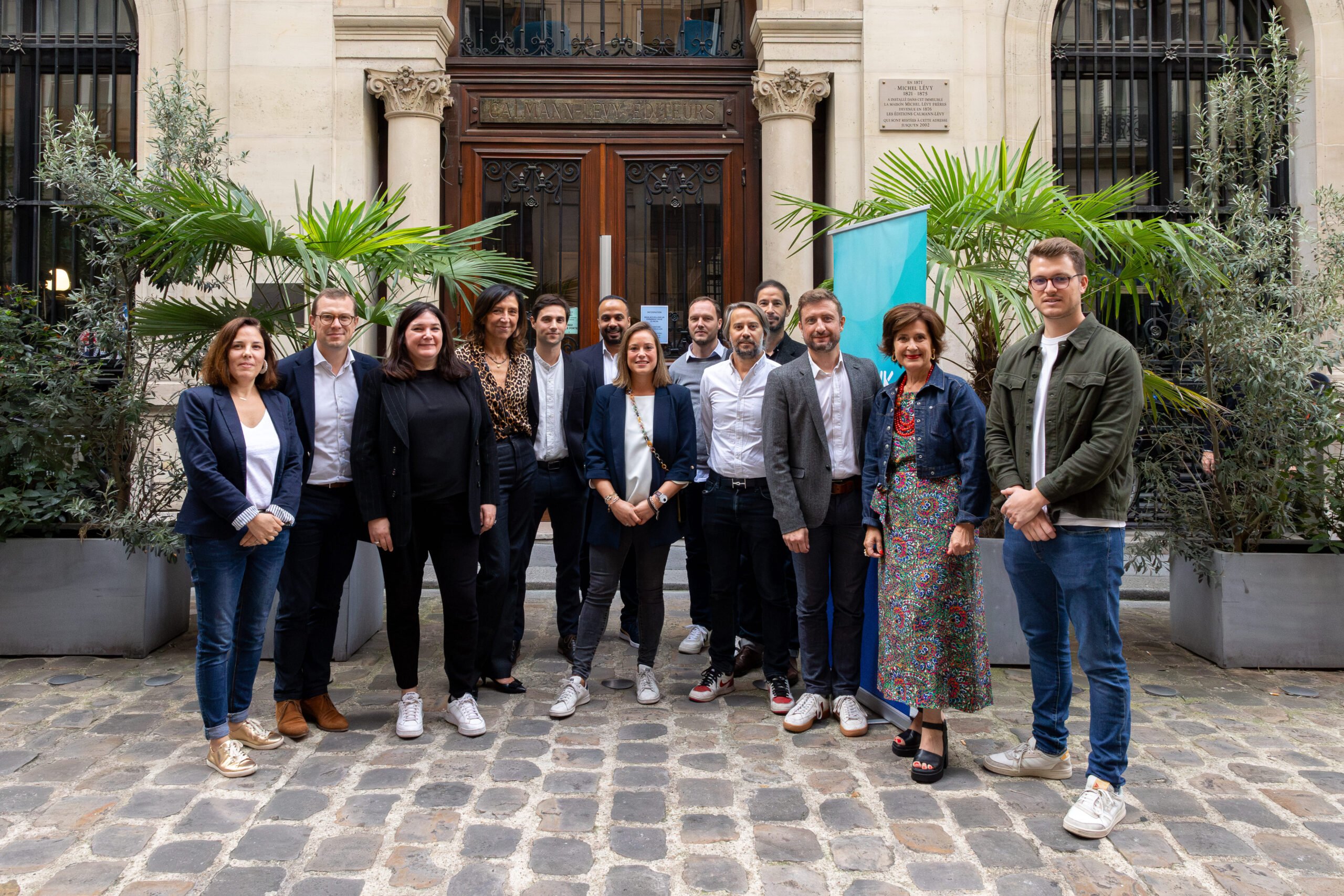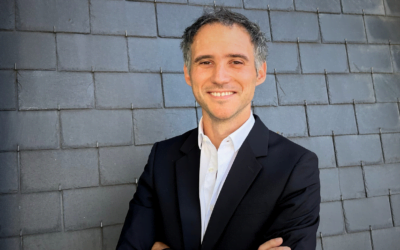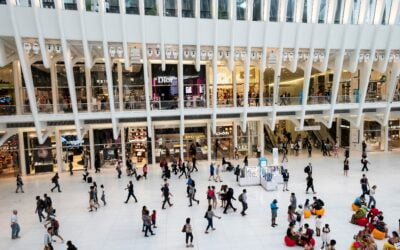An essential pillar of the advertising landscape, digital out-of-home (DOOH) has grown steadily over the last ten years, and the opportunities offered by this lever have been further enhanced by the development of programmatic buying. But while pDOOH now offers advertisers unprecedented communication opportunities, with very encouraging growth forecasts, a number of questions remain.
On 26 September, Hawk brought together no fewer than 13 market experts – from both agencies and publishers – for a morning of round-table discussions on the specifics of this lever, which is still the subject of much debate.
Many thanks to all the speakers for their inspiring contributions: Isabelle Schlumberger, Managing Director of Commerce, Marketing and Development at JCDecaux, Valérie Decamp, Managing Director at Mediatransports, Pierre Toujas, Trading Manager at Qwamplify Display, Vladimir Chou, VP Demand France at Hivestack, Adrien Jehanno, Co-founder of Allmatik, Anne Laure Padrines, Head of OOH at Publicis Media France, Clément Lion, DOOH & Programmatic Sales Director at JCDecaux, Geoffrey Galabert, Chief Product Officer at Screenbase, Alexandra Roa, Director Business Development, France & Switzerland at Broadsign, Théo Fontenit, Head of OOH-DOOH Strategy & Development at Havas Media, Constance Bos, Consulting Director at iProspect, and Mehdi Aroussi and Nicolas Sistac from Hawk. Thanks also to François Quairel from 100%Media | The Media Leader France for hosting this event.
The round tables were rich in insights and reflections, which we have summarised for you in 4 key points:
✍🏻 Key points to remember
#1 An extremely dynamic lever, but one that still needs a lot of preaching
According to VIOOH’s State of the Nation 2023 study, 89% of respondents in France (advertisers and agencies) believe that programmatic DOOH offers the most innovative opportunities compared with any other media channel. All the signs are green for this lever, which has already been activated by almost a third of French advertisers and is expected to grow by more than 30% over the next 18 months.
However, there are still a number of questions surrounding this medium, as evidenced by the questions buyers ask us on a daily basis: why is programmatic DOOH sold at this price? What inventory is available? Is this medium more for branding or performance? What role does it play in an omnichannel strategy, and how can it be measured?
Valérie Decamp, Managing Director at Mediatransports, stresses the need to educate people about this medium, which is still in its infancy, with DOOH having been really structured with networks for around ten years in France, and programmatic buying having only been launched in 2018.
Educate on creative issues, for example: “Creative people haven’t really got to grips with this medium yet, and unfortunately we sometimes get creative assets that are just flashing posters.”
We also need to educate people about the minimum investment required in programmatic DOOH. As all the speakers pointed out, many advertisers have had the same reflex of trying out programmatic DOOH with leftover budgets. But programmatic DOOH is a medium in its own right, requiring investment that matches the campaign objectives.
#2 Programmatic DOOH: what pricing?
Anne Laure Padrines, Head of OOH at Publicis Media France, explains that it is possible to use leftover budget, but that this is not the objective. “In this case, we’ll reduce the geographical scope, or redirect the objective of the campaign. This is not possible, for example, for an awareness campaign!”
It is vital to make people understand the importance of the investment linked to the objective. Adrien Jehanno, co-founder of the Allmatik agency, agrees. “An advertiser with 4,000 euros who wants to cover the whole of France with 1,200 billboards will have extremely disappointing results in terms of visibility.
So what are the minimum investment targets for an effective campaign? That depends, of course, on the advertiser’s objective and the context. Théo Fontenit, Head of OOH-DOOH Strategy & Development at Havas Media, points out that although it is becoming a targeting medium thanks to the possibilities offered by programmatic advertising, pDOOH remains above all a powerful medium for reach. It is essential to integrate it fully in order to create relevant campaigns. The entry ticket, which used to be 10/20/30K euros, may now be 100/200K euros or even more, a sign that the work of evangelisation is continuing.
As for the price of pDOOH, most experts agree that the price is justified by the value provided by this purchasing model. More granularity, more targeting, more scripting between activated screens… these various advantages are enough to give incremental value, which is expressed in price.
#3 The sophistication and unique possibilities offered by pDOOH
“The sophistication brought about by programmatic buying is extraordinary,” says Isabelle Schlumberger, Managing Director of Commerce, Marketing and Development at JCDecaux. Clients who have long been reluctant to use outdoor advertising are now taking the plunge into pDOOH, because this lever increases the possibilities tenfold!
Although originally a mass medium par excellence, DOOH now offers superb opportunities for targeting, contextualisation and immediacy, thanks to programmatic buying.
DCO (Dynamic Creative Optimisation) is a very good example of this: programmatic buying makes it possible to adapt DOOH advertising in real time according to certain conditions such as the weather, the results of a sporting event, and many others. Constance Bos, Consulting Director at iProspect, has implemented it for a client in the alcohol sector: DCO has made it possible to respond to on-trade issues, by selecting activated screens close to partner bars and restaurants and by having a real storyline in the creative broadcast, depending in particular on the weather and the days of the week.
It is particularly interesting to use pDOOH as part of omnichannel campaigns, in order to complement/amplify messages and boost performance tenfold. Its coverage of the territory makes it a powerful asset for awareness campaigns, while it can be the last-metre medium for drive-to-store or in-store campaigns.
Finally, pDOOH works particularly well within retargeting strategies, for example by combining it with mobile to retarget people exposed in DOOH through Display, VOL or Audio.
#4 Data and measurement in pDOOH: where do we stand?
If programmatic buying brings a breath of fresh air to DOOH, as Vladimir Chou, VP Demand France at Hivestack, points out, what about measurement?
Until now, measurement of effectiveness was embryonic in DOOH, but now it’s possible in real time thanks to programmatic buying. In addition to traditional KPIs, it is now possible to measure performance across the entire funnel. With post-test studies in Branding, for example, and Footfall measurement in Drive-to-Store.
However, measurement remains a subject for continuous improvement in pDOOH, as a number of limitations have been identified. In particular, it is difficult to measure visits to shopping centres or exposure in high-density environments such as airports with the same degree of accuracy.
Publishers are aware of their role to play in this area, and are working on a number of solutions. In particular, a research programme was launched 18 months ago within the framework of the UPE – Union de la Publicité Extérieure – to make progress on performance indicators and provide advertisers with ever more insights to help them measure ROI.
One thing is certain: programmatic DOOH has a bright future ahead of it, and advertisers have a vast field of opportunities to explore!



